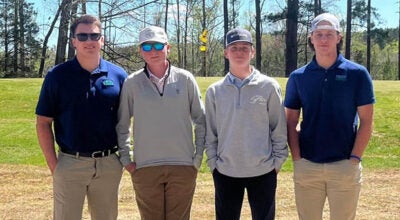Treasures on the Shelves — Expand your reading list
Published 5:30 pm Thursday, April 21, 2022
|
Getting your Trinity Audio player ready...
|
As both a librarian and an avid reader, I often find myself either looking for something to read or helping suggest a title or subject to someone else. I usually try to find a balance between reading for pleasure and also reading to learn something new. To that end, every year I try to stretch myself to venture into different territory, usually in the non-fiction format.
Several years ago, “The Immortal Life of Henrietta Lacks” was all over the bestseller lists. In school, my least favorite topic was science (except for geography), so I thought this would be a good book to read and expand my knowledge. An absorbing account of both a scientific miracle involving stem cells, and the detrimental side of medical progress, this book remains a classic of the genre.
A few years later, I discovered one of my favorite journalists, Susan Casey, was also a science writer. I am of the generation that saw “Jaws” at a young age and has had a sort of terrified fascination with sharks since then, so the first book of Casey’s I read was “The Devil’s Teeth.” This is a compelling story of the oceanographers studying great white sharks around the Farallon Islands off the coast of San Francisco. Every fall, hundreds of sharks gather around the island to feed on the abundant seal population, giving the scientists ample opportunity to study the typically elusive creatures. Ironically, the book’s title comes not from the sharks but from the rock formations on the island, which has a kind of haunted history itself. Casey is an excellent writer and her second book, “The Wave” discusses ‘rogue’ waves of 100 feet or more, a phenomenon that for years was dismissed as being impossible. Casey interviews both scientists and ‘extreme’ surfers about their encounters with these waves and analyzes data that proves not only are they real but they have been occurring far longer than scientists realized.
Another science journalist, Kathryn Miles, traveled through the continental U.S. talking to seismologists and structural engineers, among others, about the phenomena of earthquakes. Her findings are discussed in “Quakeland.” Most people think earthquakes are primarily a concern for the west coast but there are seismic faults all across the country where an earthquake could cause cataclysmic damage. Miles explores the impact a major quake could have, from economic disruption to the displacement of communities. She also examines how human activity, specifically hydraulic fracturing, is deepening fault lines in some states, potentially increasing the magnitude of future earthquakes. This would be the perfect book for anyone interested in earth science or geology.
So the next time you are wondering what to read, challenge yourself to try something different. Your favorite books will still be waiting for you and it may just turn out you learn something new or discover an old subject in a new way.
Holly Howze is the branch manager for the Ripberger Public Library located in Kenbridge. She can be reached at lcplsbooks@gmail.com.



